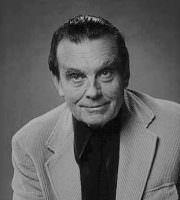About Czeslaw Milosz
Czeslaw Milosz, (born June 30, 1911 in Šeteniai, Poland and died August 14, 2004), was a Polish poet, novelist, essayist and translator. Considered one of the major poets of the 20th century, Nobel Prize for Literature in 1980. He is the author of The Captive Mind published in 1953, which questions the place of intellectuals within authoritarian regimes. In 1933, Milosz published his first poetry collection, A Poem on Frozen Time. A law graduate in 1934, he received the same year the Prize of the Polish Writers Union of Wilno. In 1936, he worked on Polish radio, first in Wilno, then in Warsaw where he met his first wife Janina. He then published his second collection Three Winters (1936) followed by Poems (1940) and Rescue (1945).During World War II, He survived the German occupation he saw in the Polish capital and after the Red Army invaded Poland, Czeslaw Milosz joined the Polish resistance in Warsaw and when communist authorities threatened his safety, he defected to France. Having obtained political asylum in France, he lived there for ten years. It was a period marked by numerous publications: The Captive Thought (1952), The Seizure of Power (1953), On the banks of the Issa (1955), A Treatise on Poetry (1957), Native Realm (1959). In 1953, he received the European Literary Prize for The Seizure of Power. His ruthless analysis of communist totalitarianism lived from within this book, will be a great shock and became a worldwide success.
At the outset of his career, Milosz was known as a Catastrophist poet, a label critics applied to him and other poets from the Zagary poetry group to describe their use of surreal imagery and formal inventiveness in reaction to a Europe beset by extremist ideologies and war. While Milosz evolved away from the apocalyptic view of catastrophist poetry, he continued to pursue formal inventiveness throughout his career.
He received many awards like the European Literary Prize, in Geneva, in 1953, The H. Nagler Prize, by the Union of Polish Writers in Exile, London, in 1957, the Jurzykowski Foundation Prize in New York, 1968, the International Neustadt Literary Prize, 1978 and the Nobel Prize in Literature in 1980. After this prize, it was the era of the Solidarno movement and his poems were finally authorized for publication in his country of origin. In 1981, Milosz was welcomed for the first time in Poland. He then wanted to resettle there but the fall of the union and the return of the dictatorship made him go back to exile.
Czeslaw Milosz died on 14 August 2004, at his Kraków home, aged 93.
Browse all poems and texts published on Czeslaw Milosz









